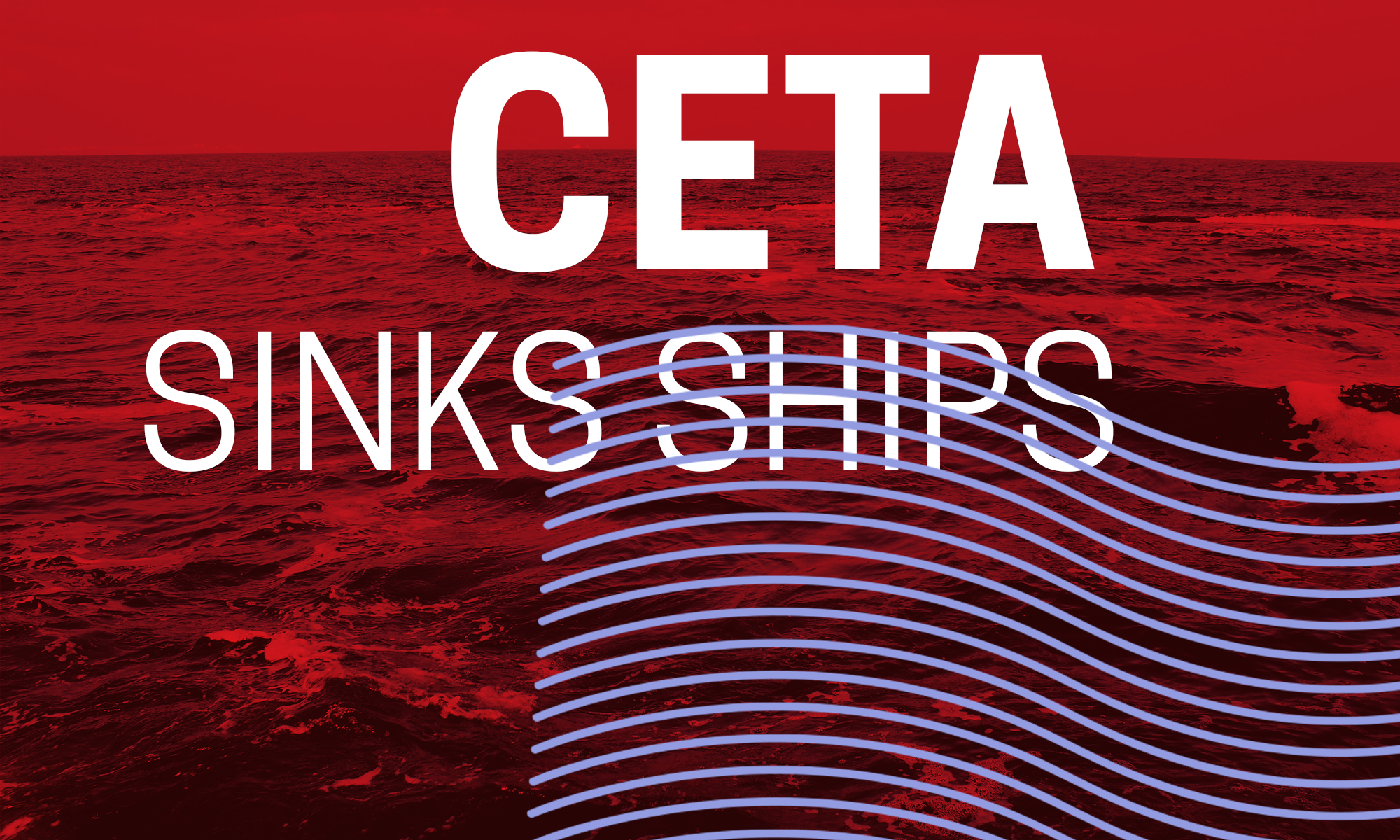Hello, Melanie:Sorry for bothering you at this doubtless busy time for you.
Madame Ramsey probably already knows this, however:
C.E.T.A.’s proponents may claim, in regard to it’s effects on the Canadian Merchant Marine and Maritime Transport Industry in general, that the agreement’s sole intent and effect is to permit the Transport of empty containers on a non-revenue basis between Montreal and Halifax.
This may be technically correct and be intended to allay the fears of those concerned that C.E.T.A’s effects on Maritime Transport in Canada would be much broader.
Effectively, the Maritime Transport Chapter appears to grant to European interests the right to transfer empty containers :
• Not only between Montreal and Halifax, but all ports in Canada ( Article 14-3, sub-paragraph 1.)
• The right to operate feeder services for cargoes on International legs ( Article 14-3, sub-paragraph 2).
However, this grant is withdrawn entirely in Reservation II-C-14, pages 1209 and 1210 of the consolidated text of C.E.T.A., except for the rights concerning empty containers between Montreal and Halifax.
Once C.E.T.A. is approved, the agreement could be amended to remove Reservation II-C-14, in which case the far broader rights accorded in Article 14-3 ( Obligations) sub-paragraphs 1 and 2, augmented by the broad definition of ” feeder service” in Article 14-1 ( Definitions), would restore to European Interests:
The right to transport all manner of cargo between any port in Canada to European ships.
I need not remind you, of course, that European registered ships are generally operated by low wage, Flag of Convenience crews.
A study conducted for the Saint-Lawrence Ship-operators by Ernst & Young and Maritime Innovation in 2015 concluded that crewing costs for European registered ships operating in Canada’s Cabotage waters would be about 30% those of Canadian ones.
Great Lakes bulk carriers transport something like 70% of Canada’s value of maritime goods.
Regarded as engaged in a feeder service for cargo on an International leg while engaged in carrying, for example, grain from Thunder Bay, Ontario to Baie Comeau, Quebec:
Great Lakes bulk carriers could be reregistered as European vessels and their Canadian crews replaced with Flag of Convenience crews.
Similarly, Ferry services throughout Canada, notably in British Columbia, Newfoundland and Nova Scotia, because of rights to bid on the provision of Government services accorded to European Interests under C.E.T.A. could, upon conclusion of existing crew contracts:
See the ships engaged in providing ferry services in Canada reregistered as European ships, their Canadian crews dismissed and Flag of Convenience crews hired.
You may agree that, in the same way European nations lost their own Merchant Marine national crews, Canadians and particularly sailors may see the Canadian Merchant Marine and it’s thousands of seafaring jobs disappear before they realise it.
Marc de Villers,
CDN63142X,
Wheelsman,
” Camilla Desgagnes.”
Legal means by which C.E.T.A. Would cause disappearance of Canadian Merchant Marine and thousands of seafaring jobs
30/01/2017
Dear Mr. President:
This is an e-mail sent this morning on the above subject.
I regret that time, compelled by the reconvening of Parliament this morning and the possibility of Debate and a Vote on Bill C-30 ( C.E.T.A. without notice) is short for a more adequate presentation.
Marc de Villers
D-1289.
30/01/2017
Sent to Tracey Ramsey NDP MP.
